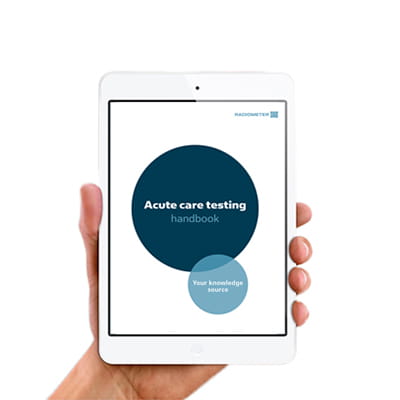Printed from acutecaretesting.org
October 2005
A landmark diabetic study
Summarized from DCCT research group. The effect of intensive treatment of diabetes on the development and progression of long-term complications in insulin-dependent diabetes mellitus. New Engl J Med 1993; 329: 977-66.
Hailed by UK diabetic expert Professor Harry Keen as "one of the most important studies ever done for people with diabetes" when it was published in 1993, this influential clinical study was conducted by the Diabetes Control and Complications Trial Research Group (DCCT).
It settled once and for all a debate that had exercised diabetologists for the best part of 50 years and provided the rationale for regular and frequent self-monitoring of blood glucose among diabetic patients – now a multi-million dollar industry.
For many years it had been suspected that raised blood glucose was a major contributory factor for development of the devastating long-term microvascular complications of diabetes: diabetic nephropathy, diabetic retinopathy and diabetic neuropathy.
This study was designed to finally answer the question: "Can the long-term complications of diabetes be prevented or delayed by maintaining near-normal blood glucose concentration?"
Between 1983 and 1989, 1441 patients with insulin-dependent (type 1) diabetes were recruited at 29 centers around the world. Each was randomly assigned to one of two treatment groups. The first was treated conventionally and the second was treated intensively with the specific aim of maintaining blood glucose within normal limits.
The prescribed treatment regimes were maintained for on average 6.5 years during which time all patients were continuously monitored for evidence of the development or progression of complications.
Intensive regime, which resulted in significantly lower blood glucose (mean 8.6 mmol/L) than conventional treatment (mean 12.8 mmol/L), reduced the risk of development and progression of diabetic nephropathy by 39-54 %, diabetic retinopathy by 54-76 % and neuropathy by 60 %.
The question posed at the inception of the study had been answered. As a direct result of the study, maintenance of near-normal blood glucose has become a cornerstone aim of diabetes management.
May contain information that is not supported by performance and intended use claims of Radiometer's products. See also Legal info.
Acute care testing handbook
Get the acute care testing handbook
Your practical guide to critical parameters in acute care testing.
Download nowScientific webinars
Check out the list of webinars
Radiometer and acutecaretesting.org present free educational webinars on topics surrounding acute care testing presented by international experts.
Go to webinars







